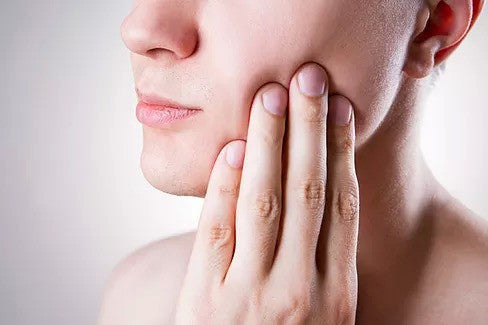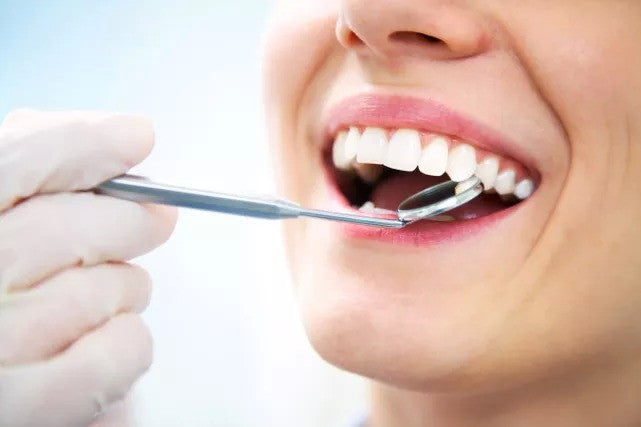
Don’t Sweat The Small Stuff — Stay Aware of Stress
Stress and Oral Health: Don’t Sweat The Small Stuff, Your Mouth Will Thank You
April is National Stress Awareness Month. Everyone has stress in their lives and that stress takes its toll on nearly every part of our bodies. The stress response is part of our body’s sympathetic (fight or flight) response controlled by our autonomic nervous system. During a stress response (such as a lion coming at us), the adrenal cortex releases cortisol, a steroid hormone that, in moderate amounts, is good for the body. It controls inflammation, regulates blood pressure, and maintains homeostasis, which is why corticosteroid drugs are administered for certain health conditions. However, an excess of cortisol due to chronic stress is detrimental to the body. Can stress cause mouth sores? Yes! Too much cortisol can lead to mouth sores, loss of sleep, immune system suppression, and weight gain.
Studies have also shown consistent links between heart disease and self-reported psychological stress, social isolation, and other stress-related factors. Chronic stress leads to an increased risk of coronary heart disease, while short-term stresses can trigger a cardiac event in patients with existing atherosclerosis.
Oral health is an area of the body particularly affected by increased cortisol levels. A stress place strain on the joints and tissue of the mouth and jaw area, and lessens the body’s defense against disease-causing oral bacteria. Here are a few of the most common ways stress affects oral health.
1. Cold Sores
Not to be confused with canker sores, cold sores are contagious lesions of the mouth or lip area caused by the herpes simplex virus (HSV-1). Once you’re infected with the virus, you have it for life, but flare-ups are usually triggered by stress. Cold sores tend clear up on their own in about a week, but over-the-counter or prescription antiviral medications are available to help speed up the healing process.
2. Canker Sores
Canker sores are non-contagious mouth ulcers that occur on the inside of the mouth. They can be brought on by minor trauma to the mouth, like bites or cuts on the inside of your cheek. Stress is believed to be a contributing factor to canker sore development since it weakens the immune system, making you more susceptible to these ulcers. To minimize discomfort, it’s a good idea to avoid spicy foods when you have a canker sore. Mouth sores from stress can be extremely uncomfortable, so it's important to take precautions to prevent them!
3. Dry Mouth
Saliva is crucial for a clean mouth. It contains bicarbonate, calcium, and phosphate, which help to neutralize the acid from plaque, repair early tooth damage and prevent decay. Under stressful conditions, the mouth produces less saliva than normal, resulting in xerostomia, or dry mouth syndrome. This shortage of saliva leaves the mouth more prone to dental decay.
Unfortunately, stress takes a toll on children too. Stresses in children’s lives like death, divorce, or economic troubles often lead to unhealthy diets full of sugary foods, which lead to tooth decay. Stress can also cause children to revert back to habits like thumb-sucking or bruxism, which are both harmful to the mouth.
Being aware of the stresses in your life and learning how to cope with them effectively can be hugely beneficial for your oral health as well as your overall health, since the same things that cause the body to break down have a similar impact on the impact of our mouths. Remember, a healthy mouth is a healthy body.
4. Bruxism
Also known as the clenching and grinding of teeth, bruxism is a parafunctional (habitual) activity that makes the teeth lose their precision for function. The front teeth can also shorten, causing the lips to sag inward due to lack of support, which makes you look years older. The front teeth are also critical for function as they separate the back teeth when we chew. Once you loose the edge of the front 6 teeth, the back teeth will wear quickly, think of not having the right gearing on your bike and there is a mis-alignment. This causes joint pain long term, lack of function, in addition to ageing the person. Most people do clench and grind their teeth at night, and aren’t even aware they do it. If you suffer from bruxism, consider jaw alignment or wearing a night guard to protect the teeth from wear due to grinding before there is tooth loss.. During three meals’ worth of chewing, our teeth experience only 12 minutes of tooth to tooth contact in 3 meals a day. In comparison, during parafunctional grinding and clenching our mouths experience hours of tooth to tooth contact causing rapid wear.
5. TMJ
Temporomandibular joint disorder is a condition that affects the hinge joint connecting the upper and lower jaw. Stress plays a major role in the development of TMJ since high levels of stress cause people to unconsciously clench and overuse their jaws, causing painful joint pain.
6. Gum disease
When we are stressed, we often lose sleep, revert to unhealthy habits, and may feel inclined to skip brushing or flossing. If we are not flossing as much we should or rushing through our oral care regimen, the combination of inflammation in the mouth and the wear of grinding or clenching accelerates the effects of gum disease.
Looking for some tools to help ensure prevention and mitigation of stress induced oral health issues? Check out these GLO Science products.







